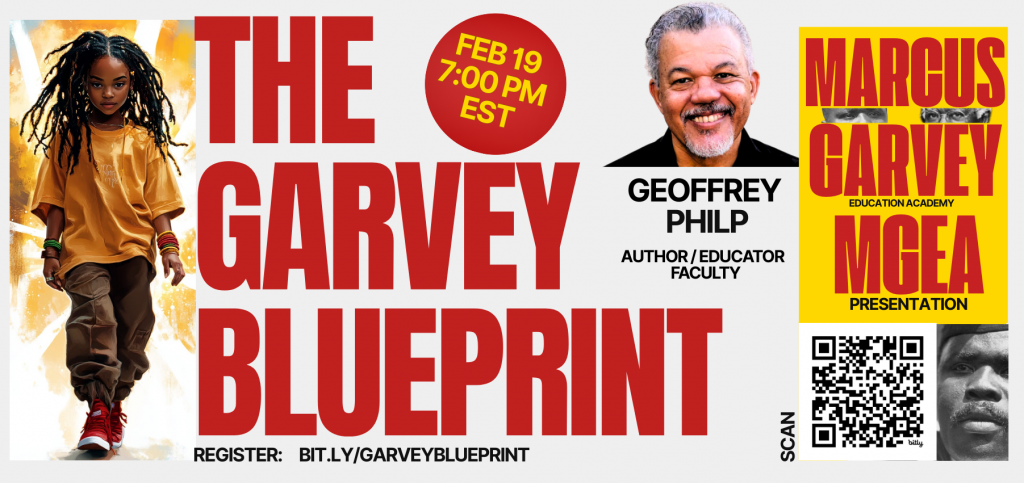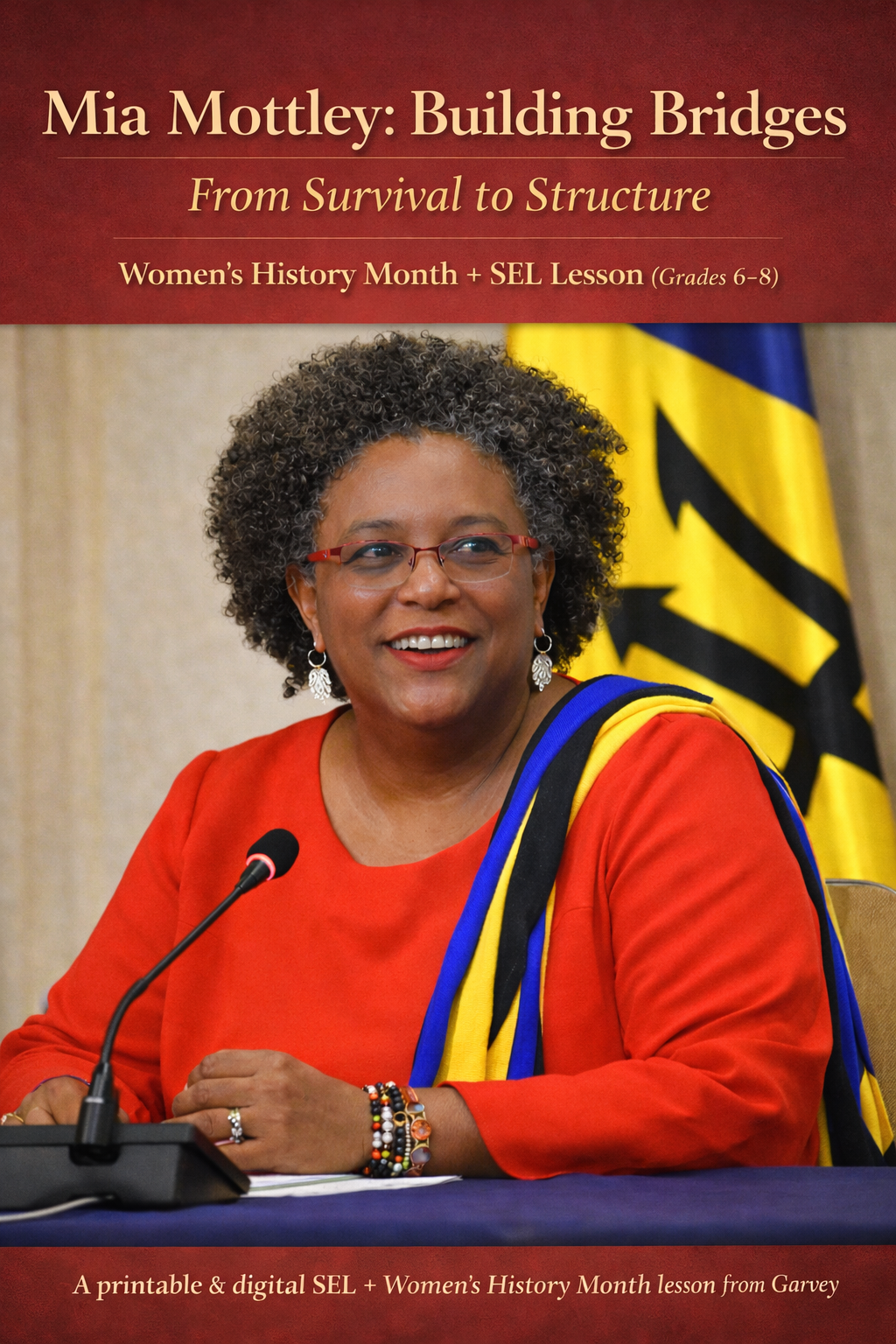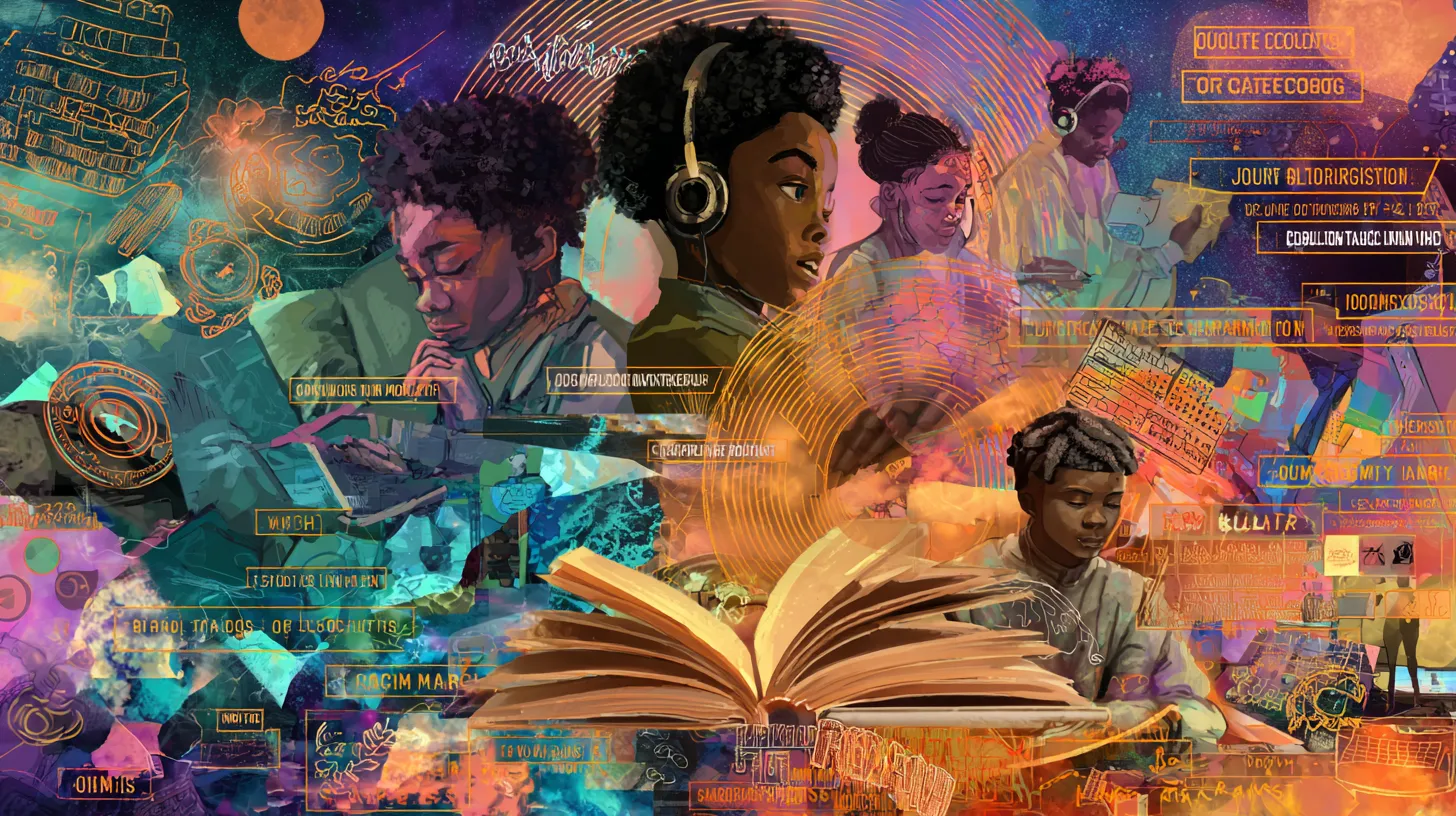
I grew up in Kingston, Jamaica. Marcus Garvey was everywhere and nowhere. His name was on buildings. His face was on the currency. But his ideas were absent from the classroom.
That absence shaped everything I have done since.
For thirty years, I studied Garvey’s writings. I spent six years teaching middle school English, and then I taught college for twenty-seven years. And across all that time, one question kept returning: Why do our children learn about Garvey as a portrait on a wall, never as a thinker whose methods they can use?
The Garvey Blueprint is my answer.
On Thursday, February 19, at 7:00 PM EST, I will be presenting The Garvey Blueprint at the Marcus Garvey Education Academy. The presentation is open to educators, parents, school leaders, and anyone who believes that Black children deserve a curriculum built from inside their own intellectual tradition.
The Garvey Blueprint: A Conversation with the Marcus Garvey Education Academy
February 19, 2026 | 7:00 PM EST
Register: bit.ly/garveyblueprint
Direct Zoom Link: https://us06web.zoom.us/j/4045329958
What Is The Garvey Blueprint?
The Garvey Blueprint is a three-year Pan-African literacy curriculum for grades 6 through 8. It uses English Language Arts as the medium through which students encounter the intellectual, political, and cultural history of Africa and its diaspora.
Across 39 instructional weeks per year, students study 31 historical figures per grade. Over three years, they encounter 75 unique historical figures and one fictional character. Nine staple figures return every year, studied through a different analytical lens each time. A sixth grader meets Frederick Douglass through the question of clarity. An eighth grader meets Douglass through the systems that criminalized Black literacy. The figure stays the same. The thinking transforms.
Three pillars govern the curriculum: the Power of the Mind, the Importance of Purpose, and the Strength of Perseverance. These pillars come directly from Garvey’s educational philosophy. They are structural principles embedded in every quarter, every framing question, and every assessment.
Why This Curriculum Exists
Colonial education divided what belonged together. African intellectual history. Caribbean political thought. African American literary tradition. These are chapters of the same story, separated by design. The Garvey Blueprint reconnects them.
Every instructional week begins with an original historical fiction anchor text. Students enter through story. They meet Harriet Tubman, Arturo Schomburg, Frantz Fanon, Antonio Maceo, Ella Baker, and dozens more as characters in a narrative before analyzing them as strategists and system-builders. The stance toward every figure is operational: What did this person build? What did it cost? Can the method be applied?
This is what we call Builders and Their Blueprints. Historical figures studied as architects of liberation whose methods transfer to the student’s own condition.
What I Will Cover on February 19
The presentation will walk through the curriculum’s architecture. How the three pillars organize instruction across quarters. How the eight developmental stages, drawn from Garvey’s own declarations, form a spine that holds together three years of learning. How the weekly rhythm moves students through four cognitive levels every single week. How the Grit Guardrail Framework ensures that when we study perseverance, we study it alongside the systems that made perseverance necessary.
I will also address the question that every parent and educator asks first: How does this prepare students for standardized assessments? The answer is direct. The Garvey Blueprint aligns with state ELA standards. Reading, writing, speaking, and listening are embedded in every week. Students write claims with evidence. They build analytical essays. They engage in Socratic discussion. By eighth grade, they defend a capstone portfolio tracing their intellectual development across three years.
The curriculum does not choose between cultural grounding and academic rigor. It treats them as the same project.
If you are an educator looking for a curriculum that teaches Black history as a year-round intellectual framework, this presentation is for you.
Who Should Attend
If you are a parent searching for something that meets your child where they are and takes them somewhere they have never been, this is for you.
If you are a school leader considering what a Pan-African ELA curriculum looks like when it is standards-aligned, assessment-ready, and built to last three years, this conversation is where you start.
Join the Conversation
Thursday, February 19, 2026
Time: 7:00 PM EST
Host: Marcus Garvey Education Academy (MGEA)
Register: bit.ly/garveyblueprint
Direct Zoom Link: https://us06web.zoom.us/j/4045329958
Share this with anyone you think may be interested. The door is open.
Geoffrey Philp is the founder of The Garvey Classroom LLC and creator of The Garvey Blueprint. He is the author of several books of fiction and poetry, a Silver Musgrave Medal recipient, and a Marcus Garvey Award for Excellence in Education honoree. He has spent twenty-seven years teaching at the college level and six years teaching middle school English.
Frequently Asked Questions
What is The Garvey Blueprint curriculum?
The Garvey Blueprint is a three-year Pan-African literacy curriculum for grades 6 through 8. It uses original historical fiction anchor texts to teach 75 unique historical figures across three years, organized around three pillars drawn from Marcus Garvey’s educational philosophy: the Power of the Mind, the Importance of Purpose, and the Strength of Perseverance.
Who created The Garvey Blueprint?
Geoffrey Philp, a Jamaican-born author and educator with twenty-seven years of college teaching experience, six years as a middle school English teacher, and two decades of Marcus Garvey scholarship, created The Garvey Blueprint through The Garvey Classroom LLC.
Is the Garvey Blueprint aligned with state standards?
Yes. The Garvey Blueprint aligns with state ELA standards, including the New York State Next Generation English Language Arts Learning Standards. Reading, writing, speaking, and listening are embedded in every instructional week.
What grades does The Garvey Blueprint serve?
The curriculum serves grades 6 through 8 across a three-year developmental sequence. Each grade has its own central question and analytical lens, with nine staple figures returning each year at increasing levels of cognitive demand.
How is The Garvey Blueprint different from other culturally responsive curricula?
The Garvey Blueprint is story-driven, meaning every instructional week is built around an original historical fiction anchor text. It studies historical figures as strategists and system-builders whose methods are transferable, rather than as inspirational symbols. Social-emotional learning is embedded in the academic work, with no standalone SEL lessons.
What is the Marcus Garvey Education Academy (MGEA) presentation?
On February 19, 2026, at 7:00 PM EST, Geoffrey Philp will present The Garvey Blueprint at the Marcus Garvey Education Academy. The virtual presentation is open to educators, parents, and school leaders.
Register at bit.ly/garveyblueprint.

